Mr. Wilkie Collins has here presented us with a 'novel with a purpose', and yet he has sacrificed none of his freedom and adroit resource of treatment. He has evidently, as he claims in the preface, devoted far more time and care to the study of character than in some former cases; but he is as ingenious as ever in managing his plot, in working one incident into another, and surprising us with developments which nevertheless have been well prepared for. His psychology in this case is closer and more realistic than we remember aforetime; though perhaps a certain section of the medical profession may feel a call to fight hard with him over some points. For he aims at exposing the dehumanizing effects of vivisection, believing with Dr. Haughton that persevered in without very effective checks on the side of ordinary sympathy, it may soon transform a man into a devil. But Mr. Wilkie Collins's great art is seen in tracing the purely psychological lines of the novel, a romance pure and simple, which cannot but affect the most ignorant and stolid. Readers who will not appreciate many of the points so cleverly made against vivisection, will sympathize with Hope Vere and Carmina in their sufferings and their final deliverance; with Miss Minerva, the governess, in her notable triumph over selfish passion; with poor Mr. Gallilee in his awkward position, and his noble decision though taken late; and with 'Zo' in her naive simplicities, and odd likings and dis likings, and her untainted healthy impulse, which enables her unconsciously to act with decision in a critical moment. It would not be fair for us to outline Mr. Wilkie Collins' well-laid plot: suffice it to say that in Mrs. Gallilee, the gradual ossification of the heart and healthy sympathies through excessive de mand for knowledge and the power it is supposed to bring with it, is a most original study—the gradual slipping into crime itself seeming to be but a necessary outcome of the false theory of life she has sought to exhibit in practice. Dr. Benjulia, who isolates himself in his big laboratory, and is keen to wink at bad practice in poor practitioners like Null that he may carry on his own experiments in brain disease, is drawn with decisive pencil; and Mr. Le Frank forms as original a villain as Carmina's old Italian nurse does an attached dependant. Mr. Mool, the lawyer, is one of the weakest characters, but luckily very much does not depend on him. Mr. Collins expresses his thanks to Miss Power Cobbe and some others for aid given to him: he will doubtless furnish them with aid in their noble crusade against scientific cruelty. On the whole, Mr. Collins has secured success in a most difficult experiment; one chief cause of which is that he has dealt with results and general impressions, leaving detail of technicalities behind. The story is strong as a story; and only those who have more or less deeply into the subject will be able to realize the labor Mr. Wilkie Collins has gone through by way of preparation for this work.
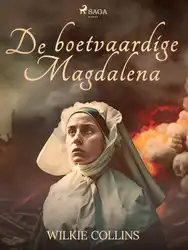
De boetvaardige Magdalena
Wilkie Collins
book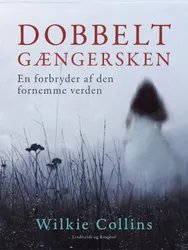
Dobbeltgængersken. En forbryder af den fornemme verden
Wilkie Collins
book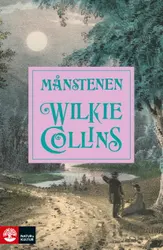
Månstenen
Wilkie Collins
book
The Woman in White
Wilkie Collins
book
No Thoroughfare :
Charles Dickens, Wilkie Collins
audiobook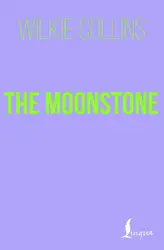
The Moonstone
Wilkie Collins
book
The Haunted Hotel :
Wilkie Collins
audiobook
Library of Masterpieces - 100 Books to Read in a Lifetime
illiam Shakespeare, Fyodor Dostoevsky, Louisa May Alcott, Miguel de Cervantes, John Milton, Jane Austen, Charlotte Brontë, Emily Brontë, Anne Brontë, William Makepeace Thackeray, George Eliot, Charles Dickens, Thomas Hardy, Jonathan Swift, Daniel Defoe, Joseph Conrad, Robert Louis Stevenson, Mary Shelley, Bram Stoker, Arthur Conan Doyle, Wilkie Collins, Oscar Wilde, T. S. Eliot, D. H. Lawrence, James Joyce, Virginia Woolf, E. M. Forster, Evelyn Waugh, Aldous Huxley, George Orwell, H. G. Wells, Lewis Carroll, Frances Hodgson Burnett, Kenneth Grahame, C. S. Lewis, Malcolm Lowry, Ford Madox Ford, Mark Twain, Jack London, Herman Melville, Ernest Hemingway, Jack Kerouac, Nathaniel Hawthorne, Edith Wharton, Walt Whitman, Kate Chopin, Harriet Beecher Stowe, Neale Hurston, Richard Wright, Raymond Chandler, Dashiell Hammett, F. Scott Fitzgerald, John Steinbeck, William Faulkner, Margaret Mitchell, Sylvia Plath, Carson McCullers, L. Frank Baum, L. M. Montgomery, Leo Tolstoy, Ivan Turgenev, Nikolai Gogol, Johann Wolfgang von Goethe, Friedrich Nietzsche, Thomas Mann, Franz Kafka, Erich Maria Remarque, Albert Camus, Marcel Proust, Jules Verne, Victor Hugo, Gustave Flaubert, Stendhal, Alexandre Dumas, Henrik Ibsen, Rudyard Kipling, Homer, Sophocles, Virgil, Laozi, Sun Tzu, Plato, Marcus Aurelius, Dante Alighieri, Niccolò Machiavelli
book
The Woman in White
Wilkie Collins
book
The Moonstone
Wilkie Collins
book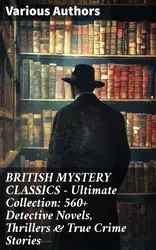
BRITISH MYSTERY CLASSICS - Ultimate Collection: 560+ Detective Novels, Thrillers & True Crime Stories : Unraveling British Mystery Classics: From Sherlock Holmes to Intricate Puzzles
Arthur Conan Doyle, Ernest Bramah, Arthur Morrison, Wilkie Collins, Thomas W. Hanshew, Edgar Wallace, Frank Froest, J. S. Fletcher, C. N. Williamson, A. M. Williamson, R. Austin Freeman, E. W. Hornung, G. K. Chesterton, H. C. McNeile, Victor L. Whitechurch, Annie Haynes, Ethel Lina White, Rober Barr, Isabel Ostander
book
BRITISH MYSTERIES Ultimate Collection: 560+ Detective Novels, Thriller Classics, Murder Mysteries, Whodunit Tales & True Crime Stories (Illustrated Edition)
Arthur Conan Doyle, Ernest Bramah, Arthur Morrison, Wilkie Collins, Thomas W. Hanshew, Edgar Wallace, Frank Froest, J. S. Fletcher, C. N. Williamson, A. M. Williamson, R. Austin Freeman, E. W. Hornung, G. K. Chesterton, H. C. McNeile, Victor L. Whitechurch, Annie Haynes, Ethel Lina White, Rober Barr, Isabel Ostander
book
